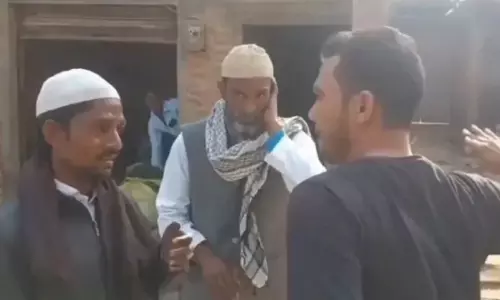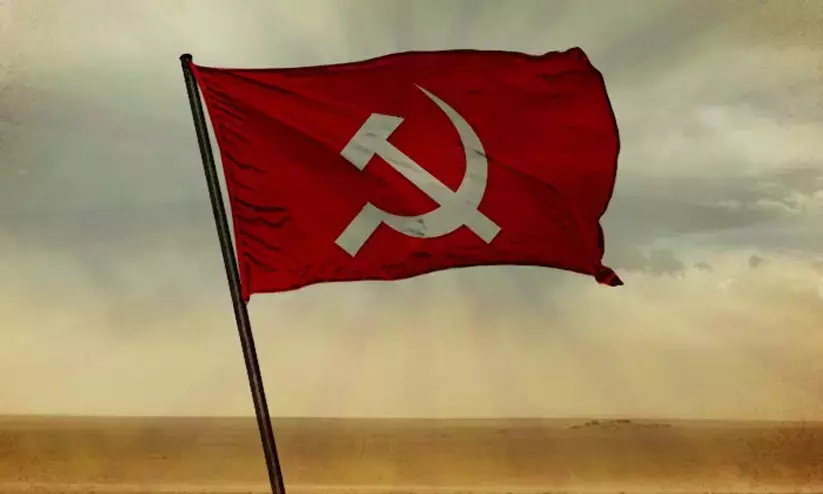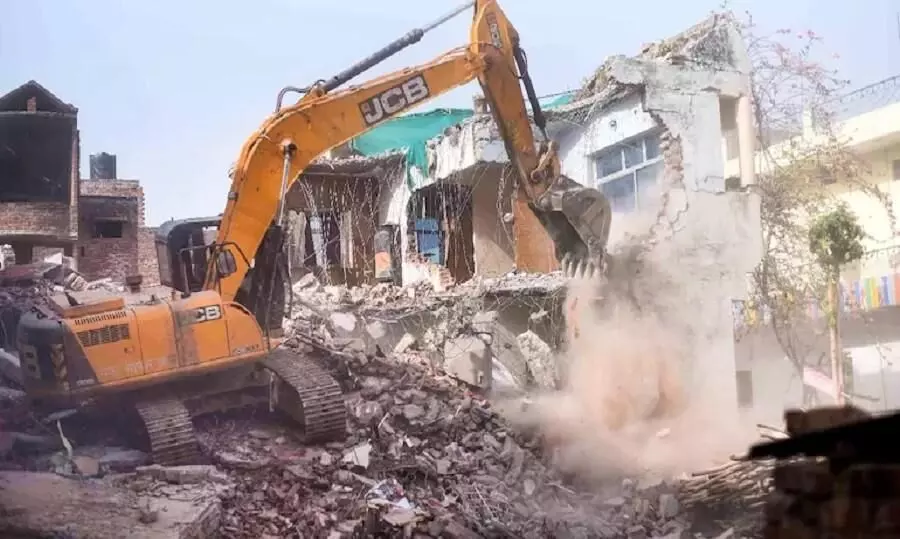
Madhya Pradesh Govt bulldozes 11 Muslim homes on allegations of finding beef
text_fieldsPersecution in the name of cows continues in BJP-ruled states, where bulldozing homes as a punitive measure by the authorities has become a norm. In Bhainswahi village, Madhya Pradesh, 11 homes belonging to members of the Muslim community were demolished on June 15, with authorities claiming that beef, animal hides in sacks, and bones had reportedly been found in the destroyed homes, according to The Indian Express.
While officials maintain that these homes were built on government land, 16 other homes in the same neighbourhood, also illegal, were left untouched because no beef was found there.
The 11 demolished homes stood as symbols of alleged illegal activities, whereas the 16 remaining homes, despite being recognized as illegal structures, were spared due to the absence of recovered beef. This selective demolition has raised questions about the criteria used by authorities in their operations.
The police action was initiated after a separate incident four days earlier, when a dhaba owner in Dithori village spotted a cow being dragged by a rope attached to a pickup truck. This led to the interception of the truck, the recovery of five cows, and subsequent protests by local groups. The interrogation of the truck's occupants directed the police to Bhainswahi, known for its history of violence related to cattle smuggling.
Authorities, led by the local police and revenue department, justified the demolition by stating that notices had been served to residents since 2022 regarding the illegal occupation of semi-forest land designated for cattle grazing.
They emphasized the challenges faced by the administration in operating in the area, citing a past incident in 2016 where a policeman was killed while serving a warrant. The recent crackdown became feasible only after residents fled the village during the police operation.
Despite this rationale, the decision to spare the adjacent 16 homes has been met with criticism. Authorities cited constraints such as the timing of Eid and sensitivity issues for not demolishing the other illegal structures, but assured that action would be taken against all illegal constructions soon.
The demolitions have left the affected families in a state of distress. Personal belongings, including a bike, a fan, dry rations, and clothes, lay scattered amidst the debris. Residents expressed their despair, with some stating that they were unaware of the impending demolitions and thus could not salvage their possessions.
The incident has created an atmosphere of tension and uncertainty among the remaining residents, who fear their homes might be next.
The police raids were part of a broader investigation into a cow slaughter racket allegedly operated by a local resident. While attempts to arrest the prime suspect were unsuccessful, the raids resulted in significant recoveries from various homes. This has further fueled the controversy, with some residents claiming false allegations and pointing out the selective nature of the demolitions.
In the aftermath, the affected families have been left to seek shelter and aid. Some have managed to salvage minimal belongings, while others continue to grapple with the loss of their homes. The village, comprising around 1,100 residents from tribal and Muslim communities, now faces a complex situation of legal, social, and communal challenges.























